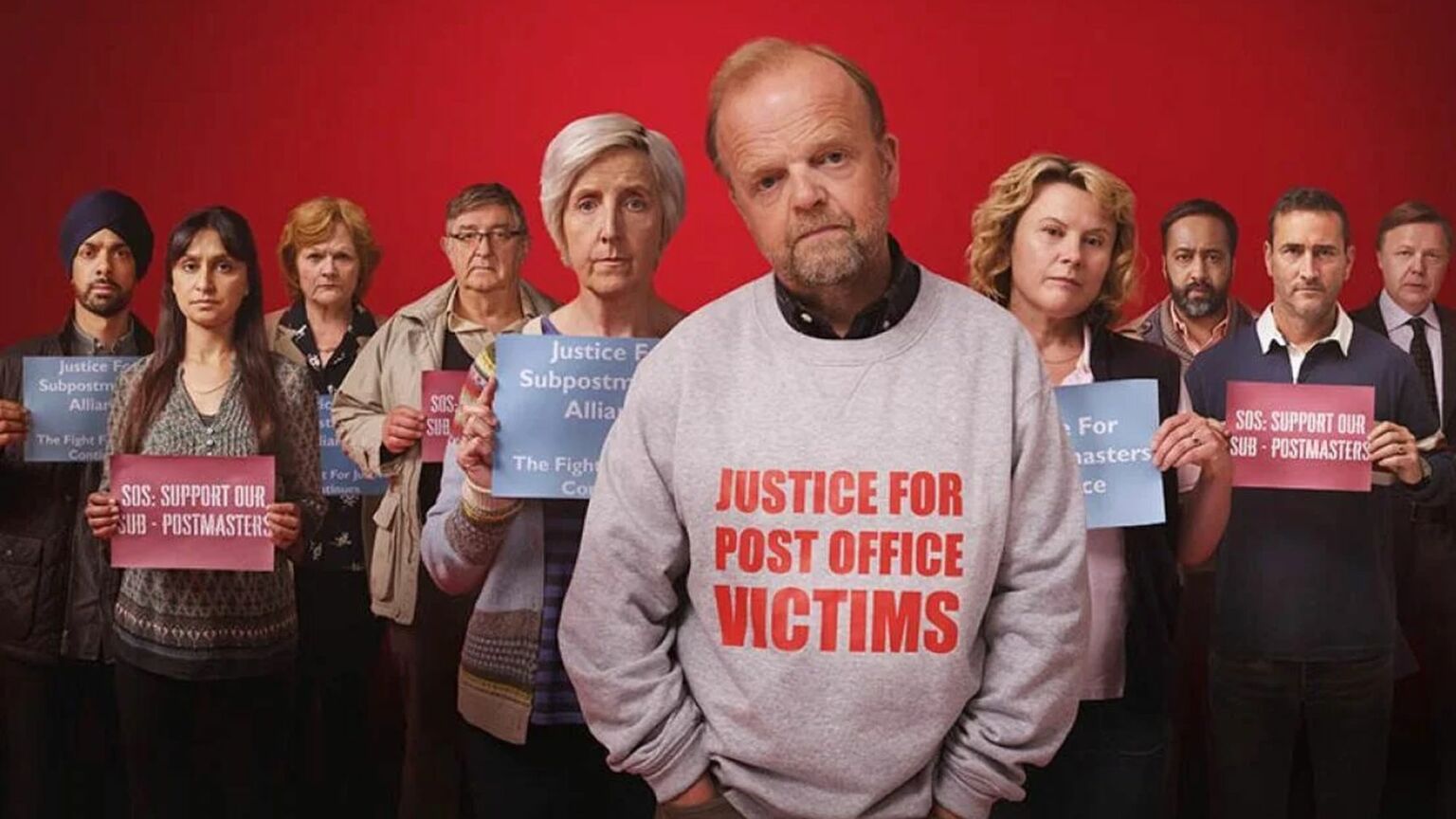The unfashionable victims of the Post Office scandal
The injustice suffered by ordinary folk from small towns often fails to move the political class.

Like millions of others, I spent last week gripped by ITV’s Mr Bates vs The Post Office – the four-part dramatisation of the Post Office scandal, in which information generated by Horizon, a faulty IT system, led to over 700 subpostmasters being wrongfully convicted of theft, fraud and false accounting between 1999 and 2015.
Rarely does a television programme prompt such a vociferous national outcry and demand an immediate response from the powers-that-be. Over the past few days alone, the UK government has announced it is considering ways to overturn the wrongful convictions en masse, speed up compensation payments and strip the Post Office of its powers to prosecute. The police have launched a fraud investigation into the Post Office. And sections of the media are finally asking questions of Ed Davey – former postal-affairs minister, now leader of the Liberal Democrats – and of Paula Vennells, who was chief executive of the Post Office when most of the subpostmasters were prosecuted.
Sadly, it seems it took the popular outrage prompted by a TV series to finally get our political and media class to take seriously a scandal that has devastated the lives of so many people.
Mr Bates vs The Post Office is not the first drama to bring a social issue to public attention. Back in 1966, the BBC’s ‘Wednesday Play’, Cathy Come Home, got the nation talking about homelessness. Then, in 1982, came Boys from the Blackstuff, which showed the reality of high unemployment in the recession-hit and rapidly deindustrialising north of England. The catchphrases of lead character Yosser Hughes – ‘I can do that’ and ‘Gizza job’ – were quoted for decades to come.
Of course, there are many more recent examples of ‘social issue’ dramas. Channel 4’s It’s a Sin looked back at the impact of the HIV / AIDS virus on a group of friends in 1980s London. Three Families portrayed real-life testimonies of women seeking abortion in Northern Ireland. And Help offered viewers an unflinching glimpse of life in a care home during lockdown. All made for compelling viewing, yet none came close to generating the audience numbers or the public response we have seen to Mr Bates vs The Post Office.
Mr Bates vs The Post Office, like Cathy Come Home and Boys from the Blackstuff before it, deals with ordinary people put into terrible situations not of their own making. Crucially, characters are portrayed as fully rounded human beings. They are not just mouthpieces for politically correct talking points. There are some truly tragic scenes in Mr Bates vs The Post Office. But ultimately, we see the subpostmasters standing up for themselves against the Post Office’s false accusations.
Mr Bates vs The Post Office is different from most of today’s television dramas. For a start, it focusses on people who live in towns and suburbs, not the trendy parts of big cities. Rather than shoe-horning in a transgender character, simply to make a point, the series remains faithful to reality. Those caught up in the injustice are predominantly white or of Indian heritage. They are all middle-aged or older. Neither wealthy nor impoverished, the subpostmasters were simply hard-working people aspiring to make a better life for their families. Audiences are not manipulated into pitying those involved. There is no room for sentimentality. Instead, we see the subpostmasters coming together in solidarity, and organising and fighting for their cause collectively.
The absence of identity politics and woke hectoring, the ordinariness of the people represented and the absence of pity are, I would argue, a big part of why the drama has cut through into popular consciousness.
But these very same factors explain why the Post Office scandal didn’t garner the attention it deserved before now. Unfortunately for the subpostmasters, middle-aged people from outside the big cities are not a particularly fashionable group in the eyes of our political and cultural elites. MPs quick to be filmed being silly in support of transgender people, kneeling for Black Lives Matter or sharing their own #MeToo stories apparently find people like the subpostmasters boring, unrelatable and potentially politically dubious.
The BBC’s recent output reflects a similar blindspot. Audiences are served up a diet of ‘awareness-raising’ storylines everywhere from Dr Who to Call the Midwife to EastEnders. The aim is always to ‘educate’, not to entertain or inform audiences. We are shown lots of fashionable victims whose experiences, though important, are miles away from most of the population. All too often, ordinary people from small towns appear on TV only to be sneered at, pitied or taught a lesson.
So well done ITV for cutting against the grain of elite opinion. The viewing figures for Mr Bates vs The Post Office smashed anything the BBC had to offer last week. Let’s hope our state broadcaster has learnt a lesson about what people want to see on TV. And let’s hope that politicians have finally been forced to right the Post Office’s shameful wrongs.
Joanna Williams is a spiked columnist and author of How Woke Won, which you can order here.
Picture by: ITV.
To enquire about republishing spiked’s content, a right to reply or to request a correction, please contact the managing editor, Viv Regan.










Comments
Want to join the conversation?
Only spiked supporters and patrons, who donate regularly to us, can comment on our articles.